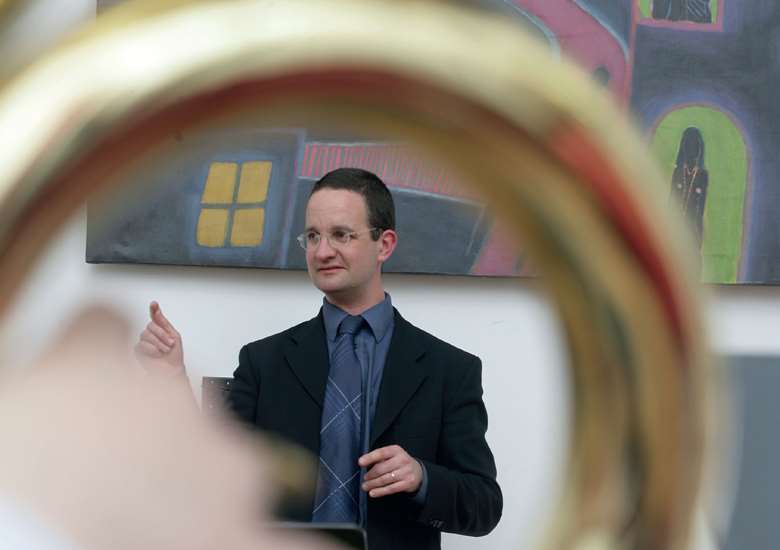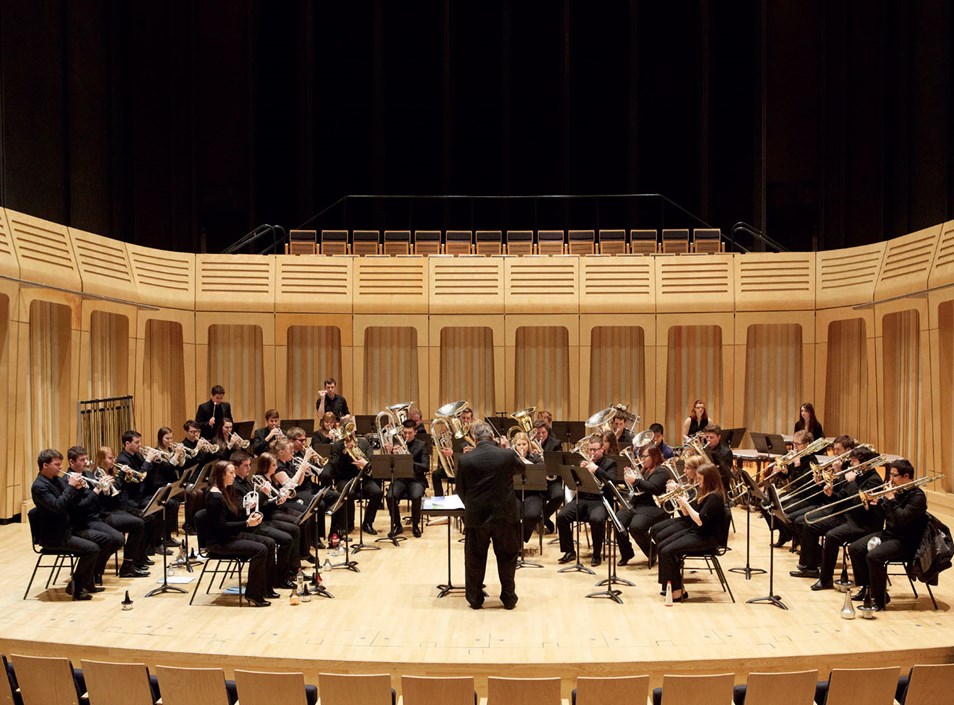Above and beyond: Royal Welsh College of Music & Drama
Rebecca Pizzey
Saturday, December 1, 2018
The Royal Welsh College of Music & Drama (RWCMD) – the national conservatoire of Wales – is renowned internationally, with a rising reputation for excellence. Rebecca Pizzey talks to Kevin Price, head of music performance, and newly appointed head of brass performance Roger Argente, to find out about the institution's plans for the future.

The Royal Welsh College of Music & Drama (RWCMD) was established in 1949 and today it boasts huge creative diversity. The conservatoire has seen thousands of talented pupils through its doors – notable alumni include Helen Nash, Nathan Stone and Justina Gringyte. There are over 300 public performances held on campus each year, with a number of impressive collaborations. The college recently became an all-Steinway institution.
Hidden in plain sight are the staff who continue to nurture the turnover of high-quality pupils, and two of those are the recently appointed Kevin Price, who became head of music performance in 2017, and Roger Argente, who has been head of brass performance since February 2018. While still in the early days of their respective posts, both Price and Argente have been working at the college for a number of years.
When Argente was a teenager, he attended the RWCMD for trombone lessons. ‘Because I got so much out of my formative years in music education at school level, I have always wanted to try to give something back,’ he says. In 2005, after 25 years as the principal bass trombone for the Royal Philharmonic Orchestra, and having founded Superbrass – ‘a way of engaging and immersing young musicians in high-octane performances’ – Argente returned to the RWCMD.

The RWCMD brass band in 2014 © ETHOS PHOTOGRAPHERS
In the same year, Price began working at the college as head of brass and percussion studies. His new role as head of music performance is, he explains, a newly created position. ‘It mediates between the industry-facing training of music students and the outward-facing diverse arts programme, which ensures that each world-class artist visiting RWCMD brings with them a significant benefit to the student's training experience.’
And what does such a role involve? ‘While developing and facilitating cross-disciplinary performance opportunities and ongoing enhancements for students, I also support the development of the college's profile as the national conservatoire of Wales, and its participation within music education in Wales and music industry networks – both nationally and internationally.’
As the head of brass performance, Argente stresses that such a role warrants complete focus and commitment when it comes to the pupils, to ‘make them as employable as possible when they graduate’. He continues: ‘The musical world has changed beyond recognition in the past decades, and we need to make sure the students are ready to embrace that.’
This forward-thinking approach to teaching seems to run throughout the college. Rather than collapsing under governmental targets and funding cuts, both Argente and Price adopt a positive attitude that looks ahead, rather than behind. So what exciting things does Argente have in store for the future of the brass department? ‘One of my aims is for the college to go across Wales and beyond, flying the flag for our brass department everywhere we travel to, while also inspiring the next generation of young players.
‘At RWCMD, we train our students so they are equipped with real-world skills to help them use, develop and personalise the outreach work, while also running their very own projects and initiatives. At the same time, we will be supporting local music centres and their teachers, who are so important to the musical future of our nation.’
Undoubtedly, this is a difficult time for music education, arts funding, and schools more generally; 34,000 teachers recently responded to Philip Hammond's proposed budget of just £400m for what he deemed ‘little extras’ (see page 5). Some universities, meanwhile, are reportedly on the brink of declaring bankruptcy, with demand for higher education having fallen since 2010.
Argente recognises this – ‘I think that most people involved in music within the UK are aware that music education is under virtual attack, and it rankles with everyone’ – but he also lauds the RWCMD's passion and commitment to alleviate the issues: ‘I see so many positives and parallels from within both our graduate and undergraduate programmes, such as the industry-led training, development and guidance, which encompass outreach, education, community, teaching skills and workshop leadership – as well as further valuable practical experiences.’
So what more needs to be done across the country to ensure that all young people have access to a high-quality music education? Price says that inspiration and opportunity must be balanced and integrated ‘according to the needs and challenges of RWCMD's educational partners in Wales and further afield’. He continues, ‘this is in order to safeguard and nurture our musicians of the future and to preserve the precious and essential “soundtrack to our lives”, which must never be taken for granted.’

